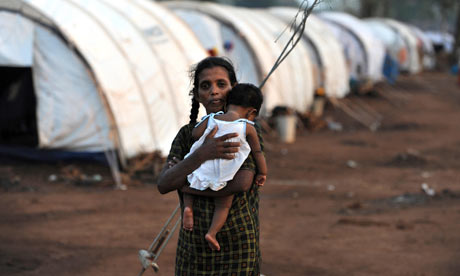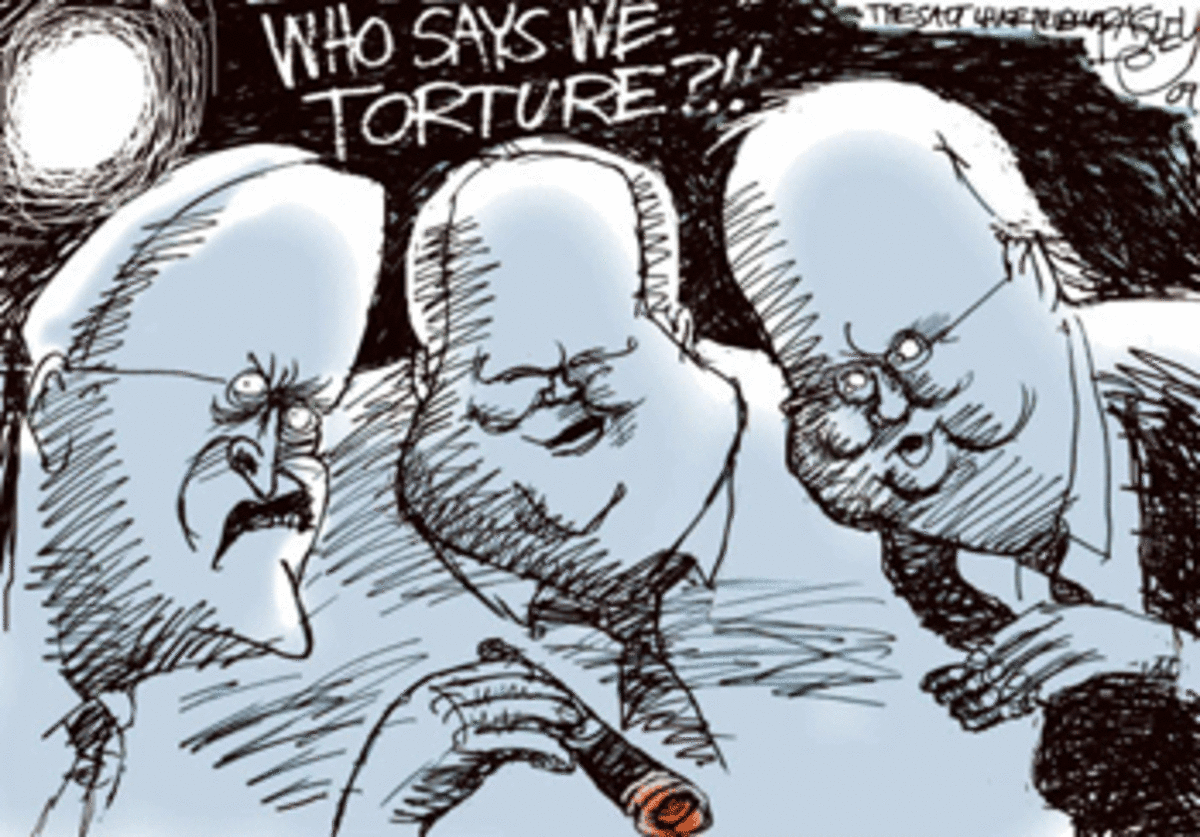
Image via Wikipedia
China has the ability to cripple North Korea by cutting off shipments of food, fuel, and luxury goods that Kim Jong Il doles out to loyalists. Kim's nuclear detonation may put that leverage in play and test its impact on the leadership.Related articles by Zemanta
China is increasingly frustrated by North Korea's defiance of United Nations resolutions designed to curb its atomic and missile programs and is worried that a nuclear-armed government in Pyongyang could spark a new arms race in Asia, analysts and a person familiar with the Obama administration's policy said.
Until now, China has rebuffed U.S. and Japanese calls for tougher economic penalties against North Korean leader Kim, agreeing only on narrow UN sanctions aimed at regime-run companies and arms imports.
"China may be reaching a point of understanding that Kim is going too far," said Dennis Wilder, a former Asia director for the White House National Security Council.
Should the Chinese leadership shift against North Korea, it isn't clear what levers would be used or whether economic clout would translate into political influence over a regime in a possible succession battle, according to the person familiar with administration policy and experts on China and North Korea.
By normal measures of economic influence, China has overwhelming and growing power over North Korea. China accounted for 73 percent of North Korea's international trade last year, up from less than a third in 2003, according to the Seoul-based Korea Trade & Investment Promotion Agency.
Oil, Food
China supplies 90 percent of North Korea's oil demand, 80 percent of consumer goods and 45 percent of its food, Dong Yong Seung, a researcher on North Korean issues at the Samsung Economic Research Institute in Seoul, said.
China didn't want to use stronger measures in the past out of fear of alienating possible successors to Kim or even sparking the collapse of North Korea, its ally of 60 years, and fomenting a refugee crisis along their 800-mile border.
An April 5 rocket launch, the May 25 nuclear detonation and subsequent short-range missile tests may lead China to work more closely with the U.S., the person familiar with U.S. policy said.
China's foreign ministry said the country "resolutely opposes" North Korea's nuclear test. On May 25 China agreed with the U.S., Japan and Russia to work toward a UN resolution censuring North Korea for its nuclear test and missile launches.
'Strong' Words
White House press secretary Robert Gibbs said China's reaction suggests there will be unanimity in the UN Security Council for efforts to punish North Korea. "The Chinese government has been exceptionally strong in their words of condemnation," Gibbs said yesterday.
Possible Chinese actions would include implementing a UN ban on luxury imports such as cognac, caviar and high-end sedans, many of which pass through the Chinese border city of Dandong into North Korea.
"North Korea runs like a Mafia family," Wilder said. "If Kim can't deliver the luxuries to his elite, they might begin to question his loyalties."
China could also curtail access to Chinese banks. In 2005, the U.S. Treasury labeled Banco Delta Asia SARL in Macao a money-laundering "concern," prompting authorities there to freeze North Korean funds. In 2007 North Korea agreed to begin implementing an accord to scrap its nuclear program after the U.S. agreed to release the funds.
And in February 2003, China either threatened or carried out a halt in oil flows to North Korea for a few days. Soon after North Korea agreed to take part in what became the six- party talks on denuclearization, Wilder said.
Famine in 1990s
A reduction in food and fuel subsidies from China and the former Soviet Union in the early 1990s helped bring on a famine that may have killed 2 million people from 1994 to 1998, according to a 1999 study by the Washington-based U.S. Institute of Peace. Reducing subsidies isn't a likely option now, Wilder said.
"If China was really serious it could probably bring the country to its knees," said Richard Bush, an expert on North Korea and China at Washington's Brookings Institution.
So far that economic leverage hasn't been brought to bear, and China has seen its diplomatic efforts to curb Kim's nuclear program repeatedly foiled by North Korea. One reason: North Korea's actions stem in part from an internal struggle to succeed the ailing Kim, according to Wilder and Bush.
The nuclear and missile tests are a show of strength by Kim and a bid to gain the support of the military and aren't driven by international developments, they say.
China may have been trying to get "in good stead" with Kim's likely successors, said Bonnie Glaser of the Center for Strategic and International Studies in Washington.
Now the Chinese may be reassessing their stance.
'Macho Acts'
The Chinese may consider "that the cost-benefit analysis of allowing him room to consolidate his succession by macho acts against the U.S., Japan and South Korea is causing too much instability in Northeast Asia," said Wilder, now a visiting fellow at Brookings.
The danger is that a nuclear North Korea could prompt South Korea and Japan to pursue atomic weapons and longer-range missiles, and the spread of nuclear arms across Asia could make China less safe.
For its part, China's government says it isn't leveraging its economic and political power over North Korea.
"The question of influence over another country's policies, internal matters is inappropriate and irrelevant," Foreign Ministry Spokesman Ma Zhaoxutold reporters in Beijing on May 26.
To contact the reporter on this story: Michael Forsythe in Washington at mforsythe@bloomberg.net.
- The Little Brat On The World's Block (themoderatevoice.com)
- North Korea Regains Attention, Tests Second Nuke [Update: Obama Responds] (firedoglake.com)
- Could China Weigh In Now? (andrewsullivan.theatlantic.com)
- Kim Il jung maybe suffering from dementia. (warintel.blogspot.com)
- North Korea nuclear test 'on a par with Hiroshima' (guardian.co.uk)

![Reblog this post [with Zemanta]](http://img.zemanta.com/reblog_e.png?x-id=cb21cc41-88ec-447d-9542-6f6173e017e4)

![Reblog this post [with Zemanta]](http://img.zemanta.com/reblog_e.png?x-id=762f152a-107c-4c93-8bb8-9449117f41b1)

![Reblog this post [with Zemanta]](http://img.zemanta.com/reblog_e.png?x-id=ceba0424-8329-4335-b7a1-7dfe226f7de2)

![Reblog this post [with Zemanta]](http://img.zemanta.com/reblog_e.png?x-id=e4a2e621-e3b7-43d3-9fb4-372991b262b7)

![Reblog this post [with Zemanta]](http://img.zemanta.com/reblog_e.png?x-id=ad502639-135d-4547-bd64-976ef724bd8e)

![Reblog this post [with Zemanta]](http://img.zemanta.com/reblog_e.png?x-id=a6a21950-0589-42af-a633-4afe6cba67b1)

![Reblog this post [with Zemanta]](http://img.zemanta.com/reblog_e.png?x-id=53550512-ed9a-4fd2-9984-798dd6147d7f)

![Reblog this post [with Zemanta]](http://img.zemanta.com/reblog_e.png?x-id=6abceede-0681-4010-b610-0dbd87514b19)

![Reblog this post [with Zemanta]](http://img.zemanta.com/reblog_e.png?x-id=dcfaf85f-aa9b-4f04-aad4-641fe7d78742)

![Reblog this post [with Zemanta]](http://img.zemanta.com/reblog_e.png?x-id=fa6946c4-1cd1-4a58-8fd0-0be4cce2c224)

![Reblog this post [with Zemanta]](http://img.zemanta.com/reblog_e.png?x-id=3f2fd4f1-20ee-411a-88c4-f640385056ec)

![Reblog this post [with Zemanta]](http://img.zemanta.com/reblog_e.png?x-id=554ab50b-f3ce-4be5-a2a2-c2797f56b5a0)

![Reblog this post [with Zemanta]](http://img.zemanta.com/reblog_e.png?x-id=e1461b52-6fb6-4889-bff4-eac7ed4a7c8e)
